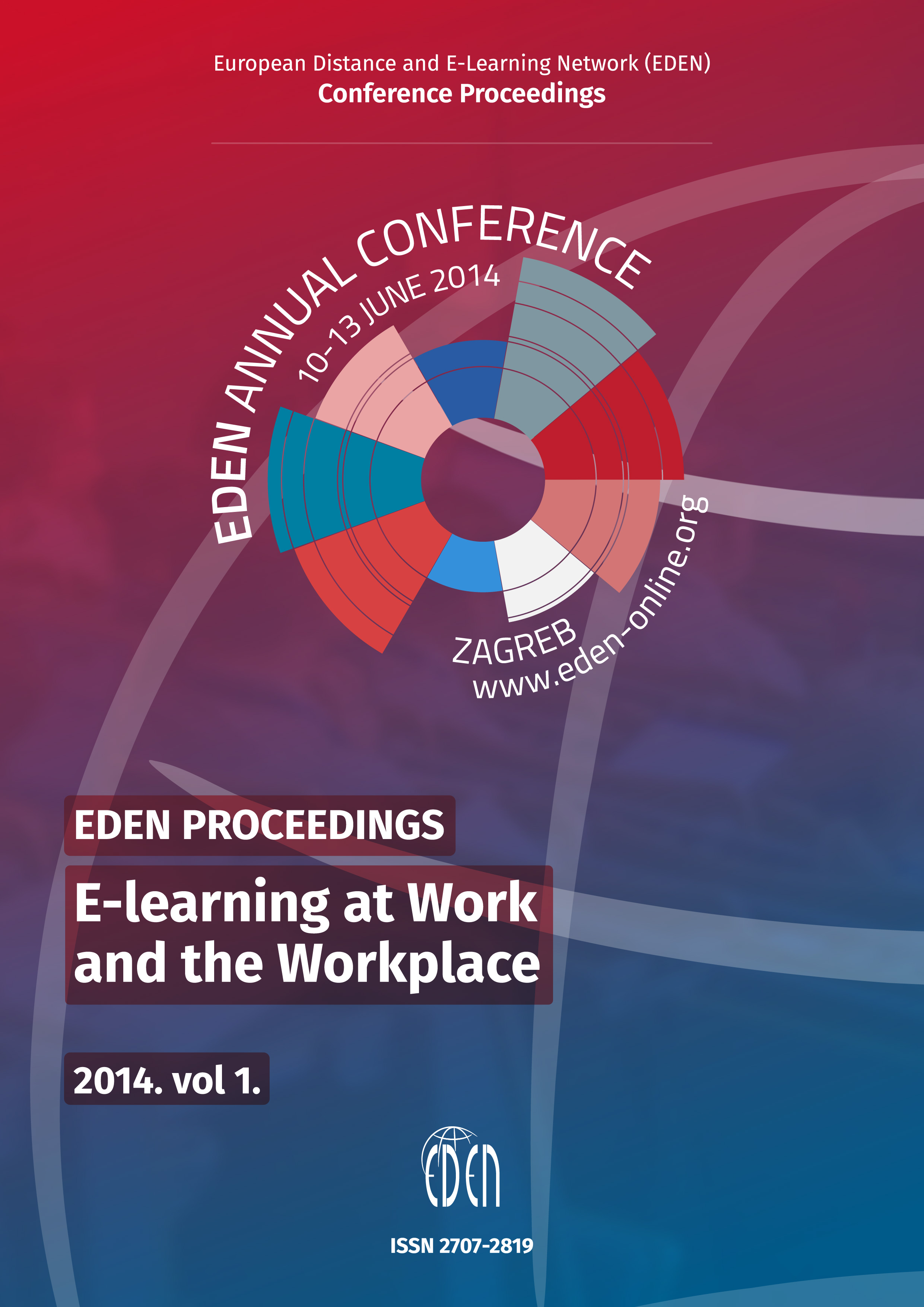The Use of a Virtual Laboratory among Slovenian Primary School Chemistry Teachers
The Use of a Virtual Laboratory among Slovenian Primary School Chemistry Teachers
Author(s): Natasa Rizman Herga, Dejan DinevskiSubject(s): Social Sciences, Education, Higher Education
Published by: European Distance and E-Learning Network
Keywords: E-learning in schools; Learning effectiveness; improvement of learning experience; Virtual reality; virtual classrooms and laboratories
Summary/Abstract: Teaching and learning chemistry is a demanding process because it includes abstract concepts and notions which cannot be seen or touched. The use of modern technologies offers assistance in overcoming this kind of difficulties since it enables visualisation of science phenomena which are too small (atoms), fast (electrons), abstract (forces) or immense (solar systems) for direct observation. Many studies show that the use of visualisation materials (physical models, analogies, animations, simulations, sub-micro presentations) enhances the understanding of chemical concepts. Chemical contents can be visualized by using a virtual laboratory which also enables the visualisation of the sub-microscopic world. Slovenian primary and high school teachers are well aware of the importance of ICT use in their classes also due to the project Computer Literacy which brought computers much closer to students and teachers. However, the actual execution of ICT supported classes and their efficiency have not been studied jet.A conceptual approach to teaching chemistry combines experimental work, problem oriented teaching methods and the use of the information communication technology with the goal to facilitate efficient learning and students’ motivation on all levels of the learning and teaching processes. Visualisation of abstract concepts and a safe experimental environment are only two reasons which points in favour of the use of a virtual laboratory in chemistry classes.Information technology, multimedia and interactive elements of virtual simulation offer new forms of education. A virtual laboratory is a tool that enables independent learning, improved individualisation, differentiation and acquisition of generic and specific competences of subjects. The use of a virtual laboratory as an additional teaching and learning method allows for better acquisition of some education goals like (1) understanding of science concepts and phenomena, (2) derivation of logical conclusions based on the results of experimentation and (3) explanation of conclusions by connecting the experimental results with theory and integrating the three levels of science concepts. The primary aim of the research was to determine the extent of the use of a virtual laboratory as an additional modern teaching strategy among Slovenian primary school chemistry teachers and which factors limited their use of a virtual laboratory. Online survey revealed that only one-third of teachers who participated in our survey used a virtual laboratory for instruction. However, when it was not possible to carry out real experiments, only a few teachers decided to use virtual experiments instead of real experiments. In this case, teachers preferred online videos of experiments. We discovered that there are mostly two reasons for the lack of use of a virtual laboratory as an additional modern teaching strategy in chemistry instruction; firstly, the unavailability of free experimental software in Slovenian language (only a few teachers did not have hardware at their disposal) and secondly, according to teachers that were included in our survey, the lack of knowledge of virtual laboratories. Teachers feel they are not familiarised enough with virtual laboratories to be able to use them. Therefore we conclude that chemistry teachers still lack subject-related didactical knowledge for the use of virtual reality technology.Teachers that participated in our survey are well aware of the fact that the use of a virtual laboratory brings new capabilities and capacities for chemistry instruction. They expressed interest and desire to use virtual laboratories. A successful instruction depends on teachers’ personal willingness to use virtual laboratories; however, it will take time to achieve the level of the use of a virtual laboratory as an additional tool for everyday chemistry instruction comparable to the use of smart phones, tablets and similar technology by students. Students are more capable to use the IT then teachers; therefore, it is important to enable teachers to use the IT and allow them to acquire, upgrade and develop the required subject-related didactical knowledge.
Journal: European Distance and E-Learning Network (EDEN) Conference Proceedings
- Issue Year: 2014
- Issue No: 1
- Page Range: 527-535
- Page Count: 9
- Language: English

